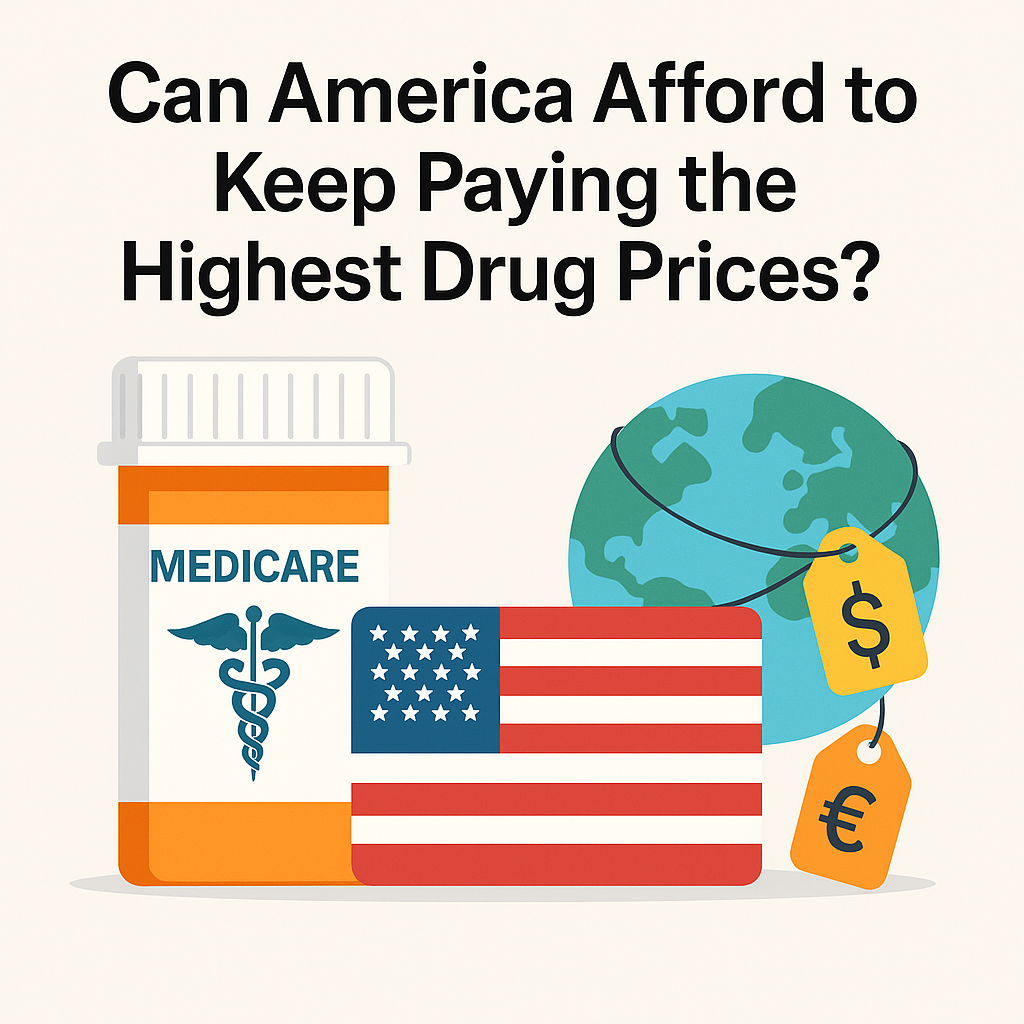
Can America Afford to Keep Paying the Highest Drug Prices?
Share
President Trump has announced the revival of the “Most Favored Nation” (MFN) model for Medicare drug pricing—a proposal originally introduced during his first term but blocked before implementation. The premise is straightforward: tie U.S. drug prices to the lower prices paid by other developed countries. But in practice, it could be a major shakeup to the pharmaceutical industry—and a potential win for American seniors.
🧾 What Is the MFN Model?
The MFN model would apply to Medicare Part B drugs—often the most expensive prescriptions administered in clinical settings—and would benchmark prices to those paid by countries like the UK, Canada, and Germany. This means instead of paying whatever pharmaceutical companies demand, Medicare would base reimbursements on the lowest average price among similar nations. (source)
📊 The Price Gap Is Staggering
Drug price disparities between the U.S. and other nations are well documented. For example:
-
Etanercept (Enbrel)
🇺🇸 U.S.: $2,225
🇬🇧 U.K.: $1,117 -
Adalimumab (Humira)
🇺🇸 U.S.: $2,246
🇬🇧 U.K.: $1,102 -
Glatiramer (Copaxone)
🇺🇸 U.S.: $3,903
🇬🇧 U.K.: $862
📊 Source: Statista Drug Price Comparison Chart
⚖️ Industry Pushback
Pharmaceutical companies have long contended that the "Most Favored Nation" (MFN) pricing model could stifle innovation by reducing the funds available for research and development of new drugs. Healthcare providers also express concerns that lower Medicare reimbursements might make it financially challenging to offer certain treatments, potentially impacting patient access to essential medications.
The initial attempt to implement the MFN model in 2020 faced legal hurdles. A federal judge issued a preliminary injunction, halting the policy's rollout due to the administration's failure to follow the standard notice-and-comment rulemaking procedures required under the Administrative Procedure Act. This legal setback prevented the policy from taking effect as planned. (source)
🧭 Why It Matters
The U.S. pays more for prescription drugs than any other country, and Medicare’s spending continues to rise. Americans often subsidize lower prices abroad—a model many believe is unfair to taxpayers and seniors on fixed incomes.
By aligning with international pricing, the MFN plan could:
- 💸 Lower out-of-pocket costs for Medicare beneficiaries
- 🏛️ Save billions in taxpayer money
- 🌎 Disrupt the global pharma pricing system, which currently places the heaviest burden on the U.S.
What do you think—should the U.S. lead the way in drug pricing reform, or is there a better solution? Let’s talk about it in the comments.
Written by Nana Creamer